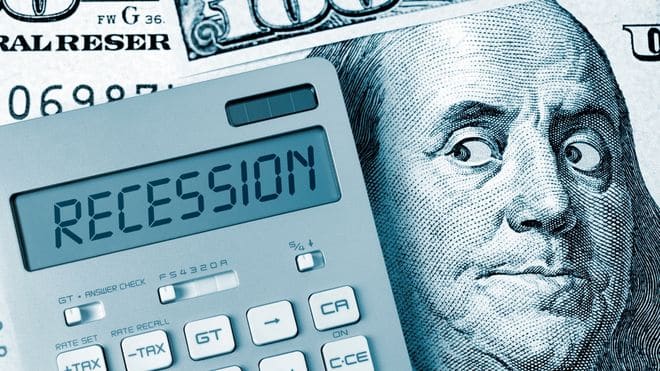
Leading brokerages now say the U.S. and global economies face a high risk of recession. J.P. Morgan increased its global recession forecast from 40% to 60% following new tariffs from the Trump administration.
Earlier this week, the White House imposed sweeping tariffs on dozens of countries. China responded Friday with its own levies on U.S. goods. The growing trade war has shaken financial markets and raised concerns about supply chain disruptions.
“Disruptive U.S. policies have been recognized as the biggest risk to the global outlook all year,” J.P. Morgan wrote. “The effect is likely to be magnified through retaliation, weaker business sentiment, and broken supply chains.”
Wall Street Downgrades Outlook as Stocks Slide
Other top firms also raised red flags. Goldman Sachs lifted its recession odds from 20% to 35%. S&P Global now pegs the risk at 30–35%, up from 25%. HSBC estimates markets have already priced in a 40% chance of a recession.
Markets reacted quickly. The S&P 500 is down over 8% this year. That follows a strong rally after President Trump’s re-election in November.
Brokerages slashed their year-end targets. Capital Economics cut its S&P 500 forecast to 5,500, the lowest among major analysts. RBC followed closely with a 5,550 projection. UBS downgraded its U.S. equities rating to “neutral.”
Rate Cuts Back on the Table
Analysts now expect more rate cuts from the Federal Reserve. Goldman Sachs and Citigroup predict up to three cuts this year. UBS expects between 75 and 100 basis points of easing.
“The tariff shock may be modestly offset by the growing likelihood of monetary easing,” said J.P. Morgan.
Markets are pricing in 100 basis points of cuts in 2025, according to LSEG data. Nomura and RBC expect at least one to three rate cuts by year-end.
Broader Economic Concerns Emerge
Analysts say these tariffs could do long-term damage. The policies are part of Trump’s push to re-shore U.S. manufacturing. While popular among industrial firms, the tariffs may stall growth.
Barclays, Bank of America, Deutsche Bank, UBS, and RBC all warn of increased recession risks. Some forecast economic growth as low as 0.1% to 1.0% if tariffs stay in place.
Markets Face Mixed Signals
The bleak outlook comes despite a strong March jobs report. The Trump administration cited job gains as evidence of economic strength. Still, economists warn that the trade war could reverse those gains.
Investors now face a confusing picture. On one side is optimism about manufacturing and reshoring. On the other is fear of stagnation, falling earnings, and policy volatility.

